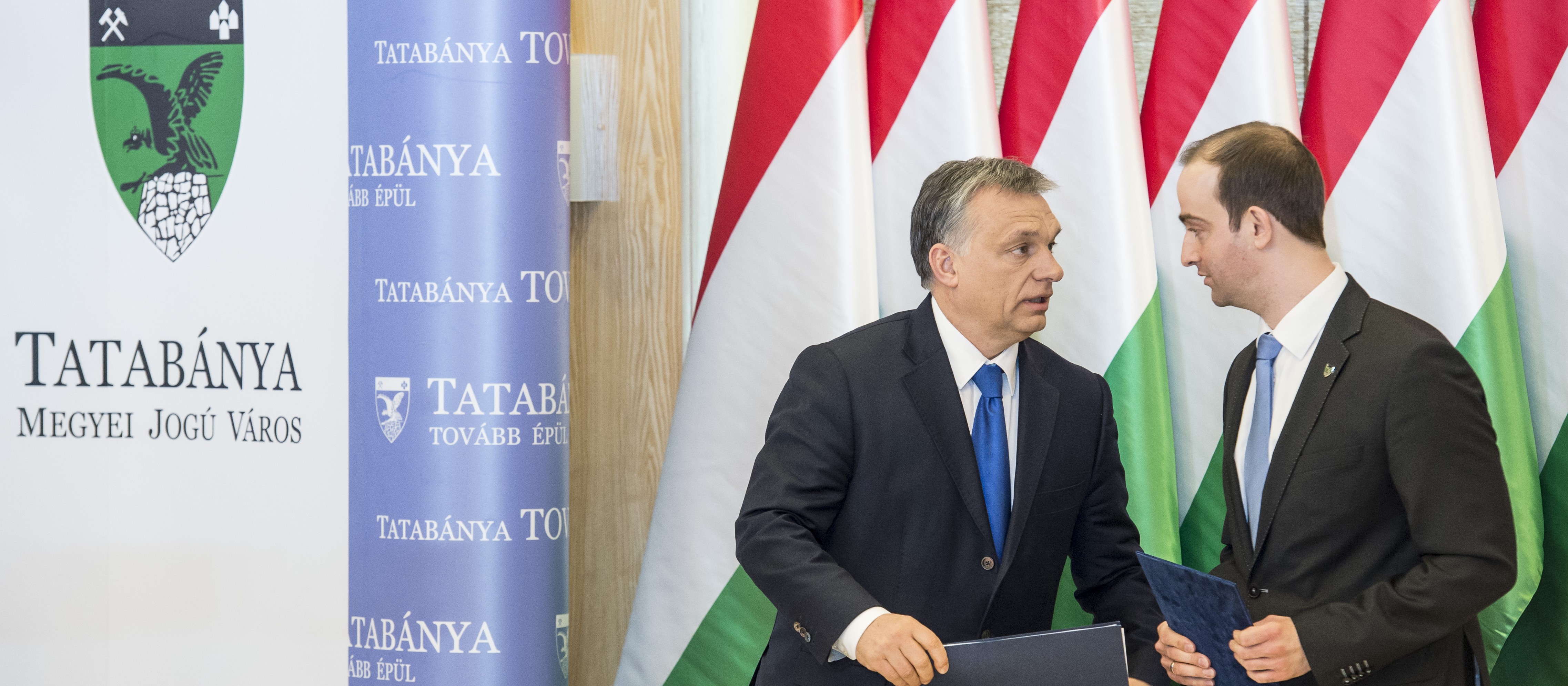
At a press conference held as part of the Tatabánya stage of the Modern Cities Programme, the Prime Minister said that part of the agreement is formed by HUF 10 billion of funding for the modernisation of the city’s transport system, including development of the railway station. The industrial park will also be enlarged, Árpád Grammar School will be oriented towards sciences, dual-training will be introduced, a swimming pool and sports hall will be built and the county library will be refurbished. The historic mine officers’ lodge may be renovated, and a new market hall and a market may also be built.

The Prime Minister pointed out that development of the railway station will be the first part of a larger modernisation programme. The station must be upgraded to the status of an intermodal transport hub, which will cost HUF 6.5 billion. In conjunction with this, from the total allocation of HUF 10 billion the railway overpass must be enlarged to four lanes, the road network providing access to the industrial park must be developed, and an underpass will need to be built. In answer to a journalist’s question, Mr. Orbán said that “If Tatabánya is to build a modern railway station, it should reflect the place where one is arriving”.
Mr. Orbán said that the Government has agreed to enlarge the Tatabánya industrial park by 140 hectares and to assume the costs of the purchase and reclassification of the plots of land. These measures have already been partially implemented. “The development of the industrial park will not be viable without the promotion of vocational training”, he pointed out. He told the press that, at the Mayor’s suggestion, Árpád Grammar School will be oriented towards science- based education and will be re-equipped from a budget of HUF 1.5 billion.

As part of the development of vocational training, state-financed technical higher education will be offered in the city, dual training will be introduced, a vocational training centre will be created, and the building of the MÁV Hotel will be converted into a student hall of residence.
Speaking about the preservation of mining traditions, the Prime Minister said that the Government will contribute HUF 1.5 to 2 billion towards restoration of the now municipally-owned mine officers’ lodge to its original state. A plan for the refurbishment of the building of the miners’ hospital will also be jointly prepared with the City.

Mr. Orbán also informed the press that the agreement contains two sports development projects. A fifty-metre indoor swimming pool will be built in the city, along with an arena for handball, which is Tatabánya’s flagship sport. “The city will have to decide whether they will embark on construction of a stadium for 3,000 spectators, or one built to international standards to accommodate 6,000 spectators”, he said.
The Prime Minister said that the Government will contribute HUF 1.5 billion to each of three other projects: the construction of a new market hall; construction of a market; and upgrading of the county library. In connection with the latter project, Mr. Orbán asked the City to create a facility which, in addition to sophisticated IT solutions, also offers visitors the experience of a traditional reading room.

In Mr. Orbán’s words, there is “a conditional agreement” on the development of Tatabánya’s public transport. As part of a complex public transport concept, the council is required to present the case for procurement of forty buses, worth some HUF 6 billion in total.
The Prime Minister added that there is a commitment to completing the development of St. Borbála’s Hospital, on which HUF 10 billion has already been spent over the past four years, but no decision on the final concept has been taken yet. This is also true for the recultivation of the Bánhida power plant site, where the possibility of tourism uses are being explored.
Mr. Orbán said that the State had taken over a debt of HUF 15 billion from the local government, and therefore “the civic-Christian and national government may also claim a little share of the success”, he said.
Mr. Schmidt told the press that in 2010 the city had been struggling with extreme debt and an unemployment rate of 12 per cent rate. Two thousand new jobs have been created in Tatabánya in the past six years, the Mayor said, and he has always been able to rely on the Government’s support in attracting investors to the city.

